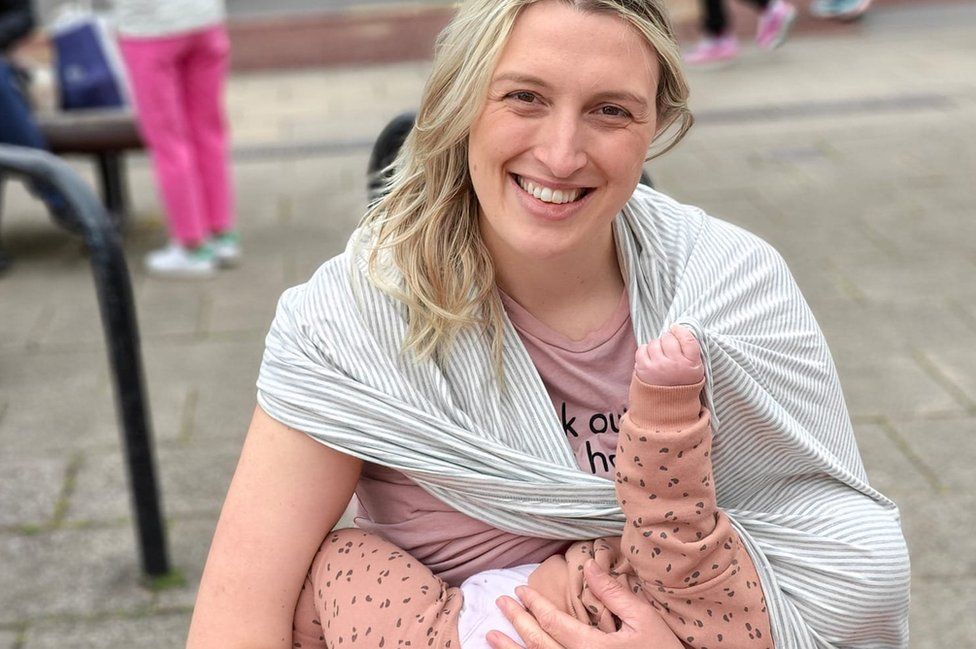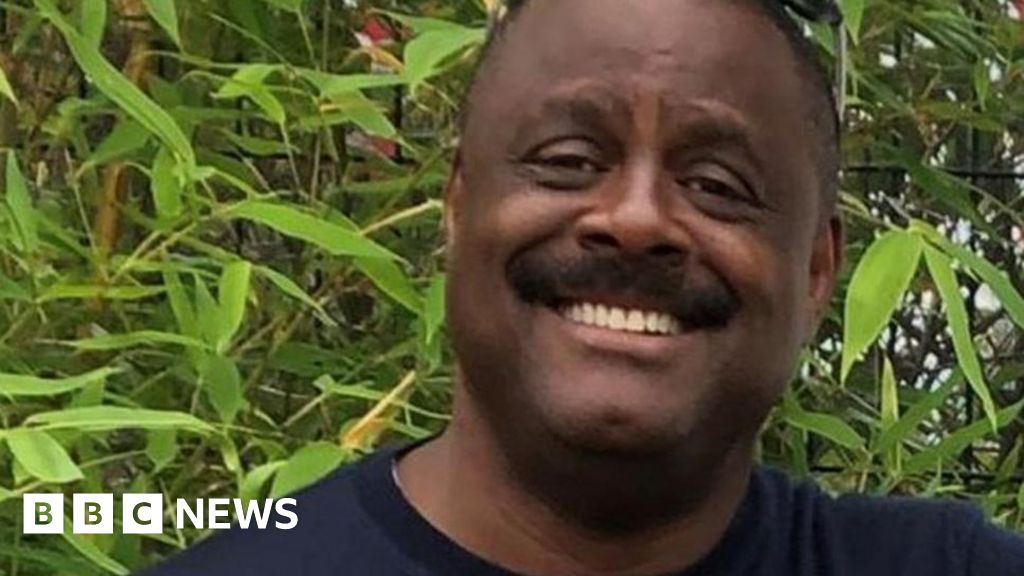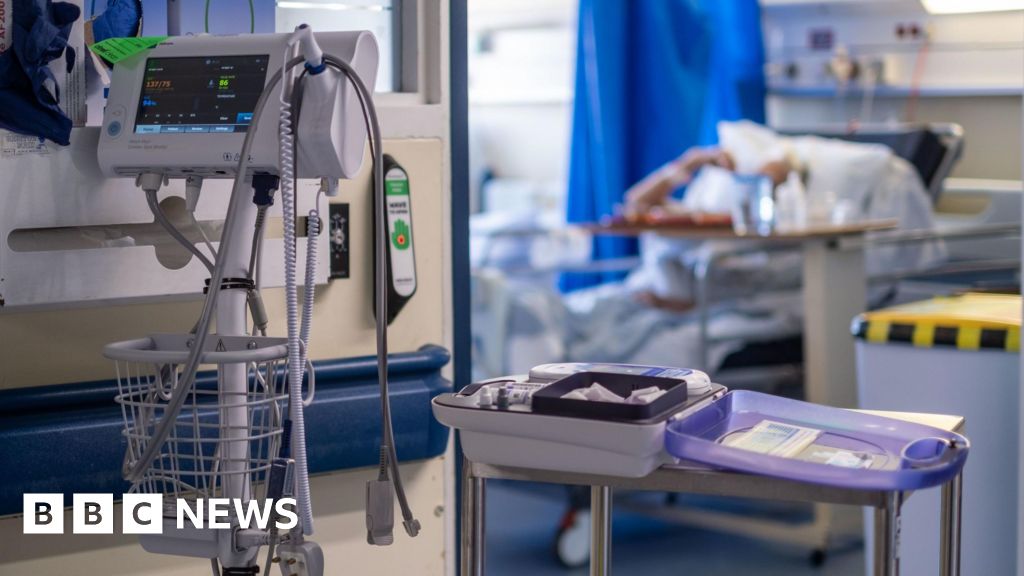ARTICLE AD BOX
 Image source, Louise Appleton
Image source, Louise Appleton
Louise fed her baby Emma for half an hour during her six hour marathon
By Charlie Jones
BBC News, East
Course records were smashed in some of the London Marathon elite races on Sunday. But that was never a possibility for most of the 48,000 participants. What was the experience like for them?
'I hope my baby will be proud of me one day'
Image source, Louise Appleton
Image caption,Louise was inspired by her baby daughter Emma and hopes she will be proud of her
Louise Appleton, 31, from St Albans, breastfed her six-month-old daughter Emma several times during the marathon, which she finished in just over six hours, having spent around half an hour of that feeding.
She could not find the dedicated breastfeeding tents and ended up feeding her daughter on a bench and in the back of a St John's Ambulance.
"Emma won't take a bottle and I would have been really uncomfortable during the race and she would have been really hungry so it was really important to feed her," she says.
Louise managed to defer her entry while pregnant, after organisers changed the rules to allow pregnant runners to postpone their place.
The solicitor, who was raising money for the British Heart Foundation, found the physical demands of breastfeeding while training quite tough and suffered some dizzy spells.
"I was worried about Emma during the marathon and how long it had been since her last feed. The whole thing was so emotional.
"When I was training I kept thinking I wanted to have a story to share with Emma when she's older. I want her to know she was part of something special and she really inspired me. I hope Emma will be proud of me one day," she says.
'I was told I would never run again having suffered a prolapse'
Image source, Claire Gleave
Image caption,Mum-of-three Claire brought a team of mothers together to run for the charity Kicks Count
Claire Gleave, 43, who has run the London Marathon nine times before, brought together a team of mums to run for the charity Kicks Count.
The mother-of-three, from Kettering but now living near Cheltenham, had been poorly all week but still managed to finish in just over five hours.
"It was one of my most enjoyable marathons despite being my slowest because my boys were there, that was so special to me. I found it so much more emotional. When I saw them at the 23-mile point I was really struggling and I burst into tears," she says.
Claire was told she would never run again, having suffered a prolapse while giving birth to her third child, but managed to recover with the help of a women's health physio.
When she realised there was a lack of activewear for pregnant and breastfeeding women, she designed her own range called Natal Active, and Louise wore one of her breastfeeding bras.
"Women do face different challenges when it comes to exercise, from periods to pregnancies and the menopause, and I'm so proud of all the women who ran with me," she says.
'Training during Ramadan meant I couldn't eat or drink in daylight'
Image source, Dr Naushin Hossain
Image caption,Luton doctor Naushin was training during Ramadan and timed her runs around fasting
Dr Naushin Hossain ran the marathon in six hours and three minutes after training throughout Ramadan, which meant she could only eat and drink between sundown and sunrise.
"I would start my runs at around four o'clock or five o'clock in the evening and then break my fast at around eight o'clock. You can definitely fast and run safely," she said.
The GP from Luton says she "loved" running the marathon and is using the money she raised to help create a mental health support centre for her local community.
'The crowds had gone home but I still felt supported'
Image source, Rebecca Mason
Image caption,Rebecca had never run before she started her marathon training
Rebecca Mason, from Kirby Cross in Essex, completed the marathon in just over seven hours, having never run before she started training.
"I used a couch-to-5k programme and built the distance up from there," she says.
Image source, Rebecca Mason
Image caption,Rebecca says the support from her husband Bradley got her through, and he ran with her for the last six miles
The 33-year-old, who raised money for the charity Action for Pulmonary Fibrosis in memory of her grandad, was walking for 30 seconds and running for 30 seconds initially but started to walk more when she got blisters around halfway.
"It was hard being one of the later runners because a lot of the crowds had gone home but there were still some lovely people out there shouting my name and my husband ran the last six miles with me to keep me going."
'Supporting the slowest runners is so important'
Image source, Charlie Jones/BBC
Image caption,More than 60 tailwalkers supported the slowest participants in the marathon
More than 6,000 people volunteer at the marathon, including 130 pacers who cover finish times from three hours up to seven-and-a-half hours.
Tailwalkers were introduced in 2021 after the race was criticised over support offered to slower runners. They start at the back of the final wave, moving along the route at an eight-hour pace and accompanying anyone slower on to the pavement to finish the race.
Jo Gennari, 50, from Bromley, who works for NHS England, was instrumental in setting up the group, which has grown from 30 to more than 60 volunteers, including some on bicycles carrying snacks and water.
"It's massively important for the back of the pack to be supported. People who know they are going to take longer to finish can get really anxious, so we want to make sure they have just as good an experience as those at the front," she says.
Claire Nicholson, 24, from Bishop's Stortford, volunteered as a tailwalker this year and supported a woman who injured her knee and had to pull out of the race, staying with her until medics arrived.
Image source, Charlie Jones/BBC
Image caption,Claire (left) and BBC journalist Charlie Jones (right) volunteered as tailwakers and helped support slower runners
She has always suffered problems with her back and had surgery for scoliosis but has run the marathon three times, with her first one in 2019.
"I finished that one in seven hours 12 minutes and people were packing up around me, which made me feel a bit panicked. Now I want to encourage other slow runners and make sure they feel confident and accepted," she says.
Shreena Kotecha, 34, from London, ran the marathon last year in eight hours and seven minutes and noticed support from the crowds really dwindled towards the end.
Image source, London Marathon
Image caption,Shreena finished the marathon in just over eight hours last year and wanted to improve the support for the back of the pack
"I got to the finish line and the grandstands were empty, my family tried to get in there but they were refused, so it was very underwhelming," she said.
Shreena has spent the last year working with organisers to improve the experience for the slower participants, forming a group of 25 volunteers to help out, called Team Finish Together London.
Image source, Charlie Jones/BBC
Image caption,Shreena is on a mission to support slower participants in the marathon
She gave feedback about her experience to the organisers and they decided to open the grandstands to the public from 16:30.
Shreena also supported participants unable to meet the cut-off time of 19:30 at an alternative finish line at St James's Park.
"I'm so passionate about this, I don't want anyone to finish the London Marathon on their own with no support ever again," she says.
'I finished last after walking it backwards'
Image source, Tom Harrison
Image caption,Tom's marathon took him more than 12 hours because he walked it facing backwards
Tom Harrison, 46, from Amersham, was the last finisher in the marathon, completing it in a time of about 12 hours at 23:38 GMT, having walked the whole route facing backwards, raising more than £3,000 for The Red Cross.
It was his sixth London Marathon, having previously crawled round as a gorilla, and he had support from tailwalkers for most of the 12-plus hours he was walking.
Image source, Tom Harrison
Image caption,A volunteer was still there when Tom Harrison finished at 23:38, making him the final finisher
"The tailwalkers were fab guiding me round the course and keeping me in drinks and snacks. The crowd and other walkers were also a great support," he says.
"It was so nice to see thousands of other people taking on the 26.2 miles in their own special way."
Find BBC News: East of England on Facebook, Instagram and Twitter. If you have a story suggestion email eastofenglandnews@bbc.co.uk
Related Internet Links
The BBC is not responsible for the content of external sites.

 2 years ago
57
2 years ago
57








 English (US) ·
English (US) ·